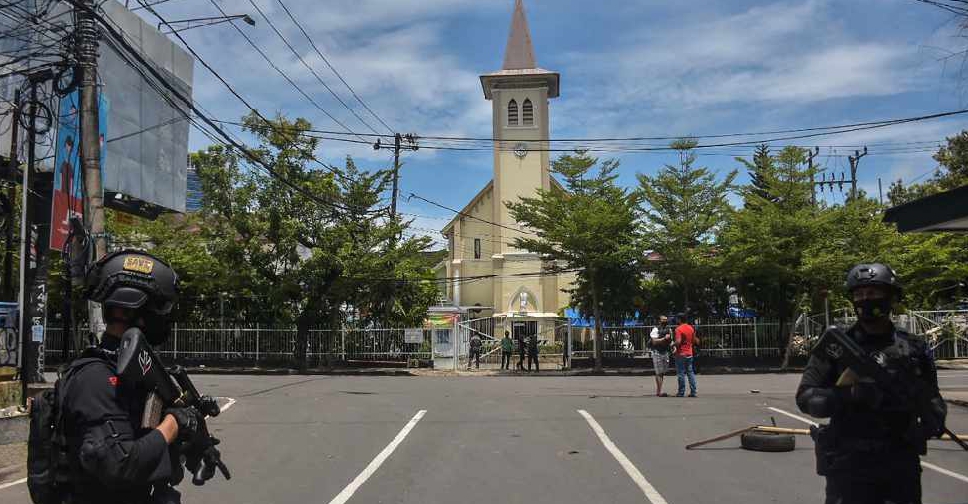
Two suspected bombers blew themselves up outside a church in the Indonesian city of Makassar on Sunday, wounding 14 people on the first day of the Easter Holy Week.
The congregation had been inside the church on the island of Sulawesi at the time of the explosion, police said, just as the mass was ending.
Local police had previously said the bomber had acted alone.
Authorities were looking into which radical networks the bombers came from and whether the attack was linked to recent arrests of suspected militants, national police spokesman Argo Yuwono said.
In January, a counter-terrorism unit raided a militant hideout in Makassar and killed two men suspected by police of involvement in twin bombings at a Philippine church in 2019 that killed more than 20 people.
Father Wilhemus Tulak, a priest at the church, told Indonesian media that a suspected bomber tried to enter the church grounds on a motorbike, but had been stopped by a security guard.
Security camera footage showed a blast that blew flame, smoke and debris into the middle of the road.
Police did not say who might be responsible for the attack and there was no immediate claim of responsibility.
Police blamed the IS-inspired Jamaah Ansharut Daulah group for suicide attacks in 2018 on churches and a police post in the city of Surabaya that killed over 30 people.
Boy Rafli Amar, the head of the country's National Counterterrorism Agency, described Sunday's attack as an act of terrorism.
Makassar Mayor Danny Pomanto said the blast could have caused far more casualties if it had taken place at the church's main gate instead of a side entrance.
Gomar Gultom, head of the Indonesian Council of Churches, described the attack as a "cruel incident" as Christians were celebrating Palm Sunday, and urged people to remain calm and trust the authorities.

 UK inquiry finds 'chilling' cover-up of infected blood scandal
UK inquiry finds 'chilling' cover-up of infected blood scandal
 Iranian President Raisi killed in helicopter accident, state media says
Iranian President Raisi killed in helicopter accident, state media says
 ICC prosecutor seeks arrest warrants for Israeli, Hamas leaders
ICC prosecutor seeks arrest warrants for Israeli, Hamas leaders
 Assange given permission to appeal against US extradition
Assange given permission to appeal against US extradition
 Israel intends to broaden Rafah sweep, Defence Minister tells US
Israel intends to broaden Rafah sweep, Defence Minister tells US




